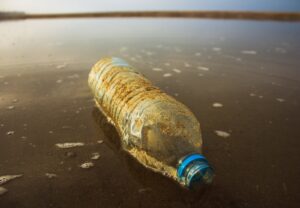The debate over whether bottled water can cause diarrhea has been a topic of discussion for quite some time. While many people believe that bottled water is a safe and convenient option for hydration, others argue that certain factors associated with bottled water consumption can contribute to gastrointestinal issues. In this article, we will explore the controversy surrounding bottled water and diarrhea to shed light on this important health concern.
I. The Controversy Surrounding Bottled Water and Diarrhea
Bottled water has gained immense popularity due to its convenience and perception of being a healthier alternative to tap water. However, there are concerns related to the safety and quality of bottled water that have raised questions about its potential link to diarrhea. Some of the factors contributing to this controversy include:
1. Bacterial Contamination: Bottled water, like any other food or beverage product, can be susceptible to bacterial contamination during the manufacturing, bottling, or storage process. If proper hygiene standards are not followed, harmful bacteria such as E. coli or Salmonella can contaminate the water and cause gastrointestinal problems.
2. Lack of Regulation: Unlike tap water, which is tightly regulated by various governmental agencies, bottled water is subject to less stringent regulations. This lack of oversight can lead to inconsistencies in quality control, potentially increasing the risk of bacterial contamination.
3. Plastic Packaging: Bottled water is typically packaged in plastic bottles, some of which may contain toxic chemicals such as BPA (bisphenol A) that can leach into the water over time. These chemicals, if ingested, can disrupt the gastrointestinal system and potentially contribute to diarrhea.
Can Bottled Water Really Cause Diarrhea?
While the controversial aspects associated with bottled water and diarrhea should not be ignored, it is important to note that the majority of commercially available bottled water is safe for consumption and does not directly cause diarrhea. The bottling industry has implemented several safety measures to ensure the quality and safety of their products.
However, it is crucial for consumers to be mindful of certain factors when choosing and consuming bottled water to minimize the risk of diarrhea:
1. Check for Certifications: Look for bottled water that has undergone quality testing and has relevant certifications from reputable organizations, such as NSF International or the International Bottled Water Association (IBWA).
2. Examine the Packaging: Opt for bottled water that is stored in BPA-free containers to reduce the risk of ingesting harmful chemicals. Check the expiration date and ensure that the bottle is properly sealed.
3. Practice Proper Hygiene: Always wash your hands before handling bottled water and avoid touching the inside of the bottle or lip where you drink from.
In conclusion, while there are legitimate concerns surrounding the safety and quality of some bottled water, it is generally considered safe and does not directly cause diarrhea. By being aware of potential risks and taking necessary precautions, consumers can enjoy the convenience of bottled water while minimizing the chances of gastrointestinal issues.
II. Contaminants in Bottled Water
When it comes to drinking water, many people turn to bottled water as a convenient and supposedly safe option. However, it’s essential to be aware that not all bottled water is created equal, and it may contain contaminants that can potentially cause health issues, including diarrhea.
Types of Contaminants Found in Bottled Water
1. Microorganisms: Although rare, microorganisms such as bacteria, viruses, and parasites can find their way into bottled water during the bottling process or due to poor handling and storage. These microorganisms can cause gastrointestinal issues, including diarrhea, if ingested.
2. Chemicals: Bottled water can also contain chemicals, such as disinfection byproducts, pesticides, and heavy metals, which may leach into the water from the bottles or the environment. High levels of certain chemicals can lead to digestive problems, including diarrhea, when consumed.
Potential Contaminants that Can Cause Diarrhea
While not all contaminants found in bottled water specifically cause diarrhea, some have the potential to do so if present in high enough concentrations. Here are a few examples:
1. Coliform bacteria: Coliform bacteria are a group of bacteria that are often used as indicators of potential fecal contamination. High levels of coliform bacteria in bottled water can indicate the presence of other harmful bacteria that can cause gastrointestinal infections and diarrhea.
2. Cryptosporidium: Cryptosporidium is a parasite that can contaminate water sources, including bottled water. Ingesting water contaminated with Cryptosporidium can lead to a diarrheal illness called cryptosporidiosis, which can be particularly severe in individuals with weakened immune systems.
3. Giardia: Giardia is another parasite commonly found in contaminated water sources. This parasite can cause giardiasis, which leads to symptoms such as diarrhea, abdominal cramps, and nausea.
It’s important to note that the presence of these contaminants in bottled water is relatively rare. Bottled water manufacturers are required to adhere to certain quality standards to ensure their products are safe for consumption. However, it’s still crucial for consumers to be aware of the potential risks and take precautions.
To reduce the risk of consuming contaminated bottled water and potentially developing diarrhea, it’s recommended to follow these guidelines:
1. Choose reputable brands: Opt for bottled water brands that have a good reputation and follow stringent quality control measures.
2. Check for water quality certifications: Look for bottled water products that are certified by recognized organizations, such as the NSF International or the Water Quality Association.
3. Store bottled water properly: Keep your bottled water in a cool and dry place to minimize the risk of bacterial growth or chemical leaching. Avoid exposing it to direct sunlight or extreme temperatures.
It’s worth noting that tap water in many developed countries undergoes rigorous testing and is often subject to more stringent regulations than bottled water. In some cases, tap water might be a safer and more cost-effective option than bottled water.
Remember, if you experience persistent or severe diarrhea after consuming bottled water or any other food or beverage, it’s essential to consult a healthcare professional for proper diagnosis and treatment.
III. Bacteria in Bottled Water
People often turn to bottled water as a convenient and seemingly safe option for hydration. However, it’s important to note that bottled water, like any other water source, can potentially contain bacteria. Understanding the presence of bacteria in bottled water and its link to diarrhea is crucial for making informed decisions about water consumption.
Presence of Bacteria in Bottled Water
Bottled water is typically sourced from various natural sources, such as springs, wells, or even municipal water supplies. While the manufacturers of bottled water are required to adhere to certain quality standards, there have been instances where bacterial contamination has been found in bottled water samples. This contamination can occur during the bottling process or due to other factors, such as improper storage or handling.
While most bottled water brands strive to ensure the safety and purity of their products, it’s essential to be aware that there is still a possibility of bacteria being present in bottled water despite these precautions.
Bacterial Contamination and Diarrhea
Bacterial contamination in bottled water can potentially lead to gastrointestinal issues, including diarrhea. Some common bacteria that have been associated with waterborne illnesses and diarrhea include:
1. Escherichia coli (E. coli): E. coli is a bacterium commonly found in the intestines of humans and animals. While most strains are harmless, certain strains of E. coli can cause severe gastrointestinal issues, including diarrhea.
2. Salmonella: Salmonella is a group of bacteria that can cause food poisoning and gastrointestinal infections. It can be transmitted through contaminated water, especially if the water has been contaminated by animal feces.
3. Campylobacter jejuni: Campylobacter jejuni is one of the most common causes of bacterial gastroenteritis. It can be found in contaminated water or undercooked poultry, leading to the development of diarrhea.
It’s important to note that the risk of bacterial contamination and subsequent diarrhea from bottled water is generally low. However, individuals with compromised immune systems, infants, and the elderly may be more susceptible to waterborne illnesses.
To minimize the risk of consuming contaminated bottled water and developing diarrhea, consider the following preventive measures:
- Choose reputable bottled water brands that undergo rigorous quality testing and have a good track record of safety.
- Check the expiry date and condition of the bottle before consuming the water. Avoid purchasing or consuming water from bottles with broken seals or damaged packaging.
- Store bottled water in a cool, dry place, away from direct sunlight and chemicals.
- If you suspect the water may be contaminated or if you experience symptoms such as diarrhea or stomach cramps after consuming bottled water, it’s advisable to consult a medical professional for proper diagnosis and treatment.
While bottled water can be a convenient option for hydration, it’s important to keep in mind that no water source is entirely risk-free. By staying informed and taking precautionary measures, you can make better choices about your water consumption and reduce the likelihood of experiencing diarrhea due to bacterial contamination in bottled water.
IV. Chemicals and Toxins in Bottled Water
Chemical Contamination and its Effects on Digestive Health
While bottled water may appear to be a safer alternative to tap water, it is important to understand the potential risks associated with the chemicals that can be found in some bottled water products. One of the primary concerns is the presence of chemical contaminants, such as phthalates and bisphenol A (BPA), which can leach into the water from the plastic bottles themselves. These chemicals have been linked to various health issues, including digestive problems.
Exposure to phthalates has been associated with disruptions in the endocrine system, which can affect hormone levels and interfere with normal bodily functions. Studies have suggested that exposure to phthalates may contribute to digestive issues, including diarrhea. Additionally, BPA has been shown to have estrogen-like effects on the body, potentially leading to hormonal imbalances and digestive disturbances.
It is worth noting that not all bottled water products contain these chemicals, as many companies have taken steps to use BPA-free and phthalate-free materials in their packaging. However, it is essential to carefully read the labels or contact the manufacturers to ensure you are making an informed choice when purchasing bottled water.
Toxins and their Potential Impact on Diarrhea
In addition to chemical contaminants, bottled water may also contain toxins that can contribute to digestive issues, including diarrhea. For example, certain types of bacteria, such as Escherichia coli (E. coli) and Salmonella, have been known to cause gastrointestinal infections and lead to diarrhea when consumed through contaminated water.
Toxins produced by harmful algal blooms, such as microcystins, can also contaminate water sources. Ingesting water contaminated with these toxins can cause gastrointestinal symptoms, including diarrhea and abdominal pain. It is essential to note that the occurrence of these toxins in bottled water is relatively rare, as thorough testing and regulation are in place to ensure the safety of the products on the market.
To minimize the risk of consuming water with toxins, it is important to purchase bottled water from reputable brands that adhere to strict quality control measures. Additionally, following proper storage and handling practices, such as keeping the bottles in a cool and dry place, can help maintain the integrity of the water and reduce the likelihood of contamination.
It is important to remember that while bottled water can be a convenient and safe option for staying hydrated, it is always recommended to drink water from a trusted source, such as properly treated tap water or filtered water from a reliable filtration system. If you have concerns about the quality or safety of your drinking water, it is advisable to consult local health authorities or professionals for guidance.
External sources:
https://www.ncbi.nlm.nih.gov/pmc/articles/PMC4399568/
https://www.ncbi.nlm.nih.gov/pmc/articles/PMC3222987/
V. Proper Storage and Handling of Bottled Water
When it comes to bottled water, proper storage and handling are essential to ensure its safety and minimize the risk of contamination and gastrointestinal issues such as diarrhea. Here are some best practices and tips to ensure safe consumption of bottled water:
Best Practices to Minimize Contamination and Diarrhea Risk
1. Store in a Cool and Dry Place: It is crucial to store bottled water in a cool and dry place away from direct sunlight and sources of heat. Exposure to high temperatures can degrade the plastic and potentially leach harmful chemicals into the water.
2. Avoid Cross-Contamination: To minimize the risk of contamination, it is essential to keep bottled water away from chemicals, cleaning agents, and other potentially harmful substances. Store bottled water separately from other household products to avoid accidental spills or leaks.
3. Check Expiry Dates: Always check the expiry dates on bottled water before purchasing or consuming. Expired water may not necessarily be harmful, but its quality and taste may deteriorate over time.
4. Maintain Hygiene: Remember to practice good hygiene when handling bottled water. Wash your hands thoroughly before opening a bottle or touching the water spout to prevent introducing bacteria or other pathogens into the water.
5. Use Clean and Sanitized Containers: If you plan to refill a water bottle, ensure that the container is clean and sanitized. Wash it with warm soapy water and rinse it thoroughly before refilling. Alternatively, you can use a bottle that is specifically designed for multiple uses and is dishwasher safe.
Tips to Ensure Safe Consumption of Bottled Water
1. Read Labels: Before purchasing bottled water, read the labels to ensure that it meets the required water safety regulations and standards. Look for certifications such as NSF International or the Safe Drinking Water Act (SDWA) compliance.
2. Store Properly: Once opened, consume the bottled water within a reasonable time frame, as prolonged storage can increase the risk of bacterial growth. If you are unsure about the safety of the water, it is best to discard it.
3. Monitor Temperature: Avoid exposing bottled water to extreme temperatures, such as leaving it in a hot car or freezing it. These temperature variations can affect the quality and taste of the water.
4. Consider Filtration: If you have concerns about the quality of your tap water, you can use a water filtration system specifically designed for home use. This can help remove potential contaminants and provide you with clean drinking water.
By following these best practices and tips, you can ensure the proper storage, handling, and safe consumption of bottled water, minimizing the risk of contamination and gastrointestinal issues such as diarrhea.
For more information, you can consult the Centers for Disease Control and Prevention guidelines on safe water handling and storage.
VI. Overall Assessment of the Relationship Between Bottled Water and Diarrhea
After reviewing the available data and research, it can be concluded that there is no direct and conclusive evidence to suggest that bottled water causes diarrhea in individuals. Diarrhea is a common condition that can be caused by various factors, including bacterial or viral infections, food intolerance, and poor hygiene. While contaminated water can certainly be a source of diarrheal illnesses, including bottled water, it is important to note that reputable bottled water brands adhere to strict quality standards and regulations to ensure the safety and purity of their products.
It is worth mentioning that some individuals may be more sensitive to changes in water sources or types, and their digestive systems may react differently. In such cases, switching to a different type of bottled water or consulting a healthcare professional may be helpful in identifying any possible triggers and finding suitable alternatives.
Summary and Key Considerations for Consumers
To summarize the points discussed in this article, here are some key considerations for consumers regarding bottled water and its potential relationship with diarrhea:
- Quality Assurance: Reputable bottled water brands undergo rigorous testing and adhere to stringent quality control measures. This ensures that the water meets safety standards and is free from contaminants that could cause illness.
- Water Source: Understanding the source of the bottled water can provide valuable insights into its quality. Look for brands that disclose information about their water sources and any purification processes implemented.
- Hygiene Practices: It is crucial to practice good hygiene when handling and consuming any type of water, including bottled water. This includes washing hands before handling bottles, ensuring proper storage, and avoiding cross-contamination.
- Individual Sensitivities: Some individuals may have specific sensitivities or intolerances to certain components or minerals present in water. If you suspect that bottled water is causing gastrointestinal issues, you may consider switching to a different brand or consulting a healthcare professional for further evaluation.
- General Hydration: It is important to stay properly hydrated to maintain overall health and prevent dehydration. While bottled water can be a convenient and safe source of hydration, other sources of water, such as tap water, can also be suitable for consumption with proper filtration and purification methods if recommended by local authorities.
Remember, maintaining a balanced diet, practicing good hygiene, and staying hydrated are essential factors in promoting good digestive health. If you are experiencing persistent or severe symptoms of diarrhea, it is advisable to seek medical attention for proper diagnosis and treatment.



